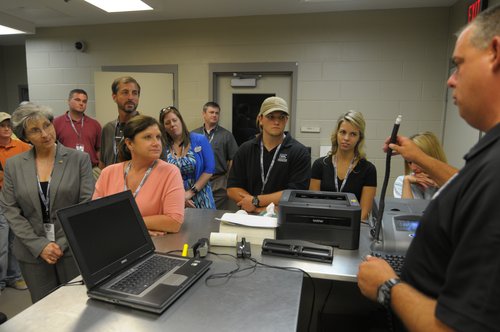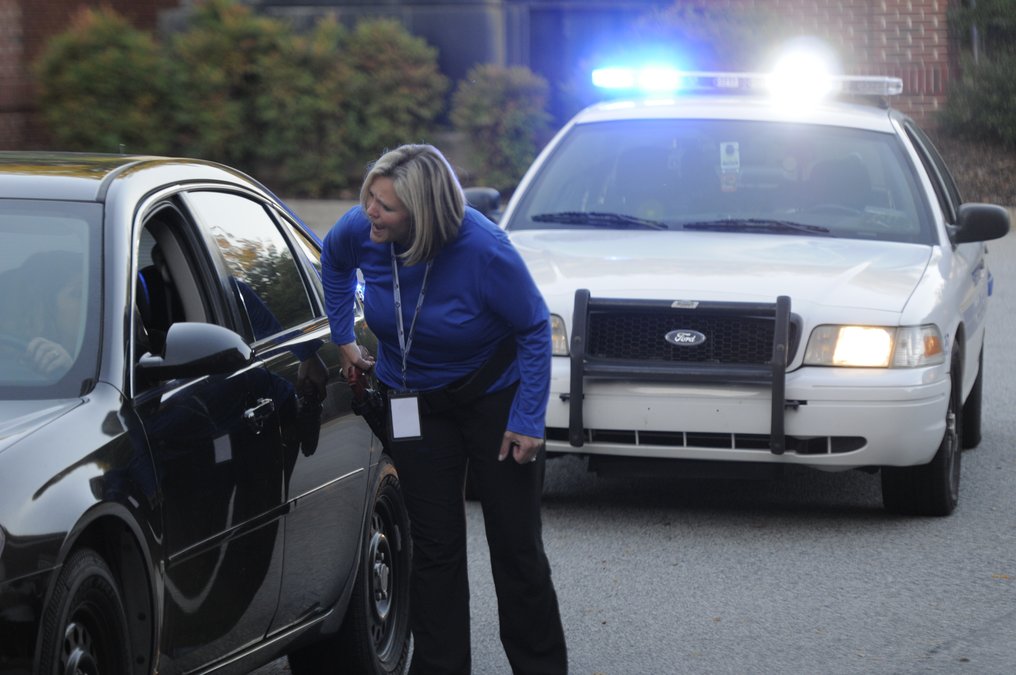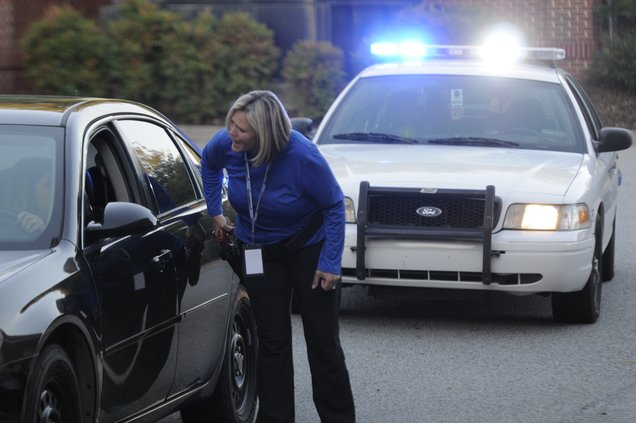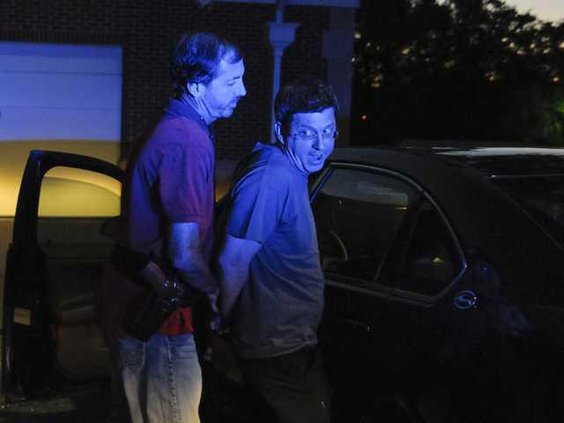Note: Statesboro Herald staff photographer Scott Bryant took part in the 12-week Citizens Police Academy offered by the Statesboro Police Department this past fall. Bryant offers his experience in the story below, as well as a feature story and photos in Lifestyles: In their shoes: Citizens Police Academy offers interaction and insight
We’ve read the stories and seen the videos.
A police officer pulls over a vehicle for a minor infraction.
“Ma’am, may I see your drivers license and proof of insurance?”
The driver angrily responds, “What are you pulling me over for? I was just driving along, minding my own business. Don’t you have something better do to? Why are you harassing me? I know my rights! I don’t have to show you my license!”
The officer squeezes the grip of her sidearm and says, “Ma’am, I need you to step out of the car.”
Then, the sequence of events heads south from there.
It’s not a typical traffic stop. In this case, it’s not even a real traffic stop. The driver is an employee of the Statesboro Police Department and the officer is a citizen enrolled in the Statesboro Police Department’s Citizens Police Academy. The above scenario was one of many designed to give academy students a sense of how law enforcement officers train and prepare to make often split-second decisions – ones that could potentially involve life and death.
Law enforcement has recently been a national topic of heightened interest and emotional discussion. Preventing and responding to acts of terrorism and mass shootings have become the highest of priorities. Relationships between law enforcement and communities of color continue to be a contentious issue. Consciousness about public safety issues in this country has perhaps never been higher.
While the acute and often tragic occurrences that generate national news may seem far removed from Statesboro and Bulloch County, they do not escape the consideration of both local law enforcement and citizens. The Statesboro Police Department views the Citizens Police Academy as a way to build relationships to help tackle tough, often uncomfortable issues, and help increase understanding between law enforcement and the community it serves.
Importance of Citizens Academy
“We’ve got a lot of resource-intensive programs in this agency, but I can’t say that any one program is more important than the Citizens Police Academy,” explained Acting Police Chief Maj. Rob Bryan. “One of the reasons that it is so important is because it’s an investment in our community. It helps further educate our community on what our agency is here to do for them.”
Cpl. Justin Samples, community relations officer for the department, served as host to 20 local citizens for 12 two-hour sessions every Tuesday this past fall. The annual program is free and open to the community, with enrollment determined on a first-come-first-serve basis.
“It’s a program that we offer for citizens to come into the police department and see what it is that officers actually do,” Samples said. “It also lets the citizens see that we’re real people, that we’re more than just police officers. We’re citizens as well. We’re part of the community.”
Student David Larrabee, who participated with his wife Ginger, said: “Police officers come across as being tough. Well, now that we’ve got through the class, they’re just regular people like us.”

The 2015 class spanned several generations, from college students to retirees. Child care, education, finance, real estate, construction, hotel management, college athletics and journalism were among the professions represented by the students.
“There were so many different people in that class,” remarked student Tina Haranda, who works at a local bank. “It was such a diverse group. The fellowship. The fact that you sit around and eat a little and laugh about the last week’s class.”
Reaching out
The last class featured a discussion panel with the entire Statesboro Police Department command staff. All questions were fair game, and the officers gave answers for two hours. Topics included the militarization of law enforcement, how training has evolved to address mass shootings, Second Amendment issues from a law enforcement perspective, dealing with the stress of the job, and even officer pay.
“I was surprised to learn the they are understaffed and that so many individual officers are working extra shifts and longer hours,” remarked Ginger Larrabee.
Both Maj. Bryan and Cpl. Samples repeatedly stressed that transparency was a core value in the Statesboro Police Department. Bryan says that the interaction with officers created by Citizens Police Academy creates better understanding of how the department is prepared to serve our community and what their capabilities are.
The academy has reached a point where there is an active alumni program, where members not only assist with academy itself, but frequently become part of the department’s volunteer programs. With training, citizens can pitch in with public safety and law enforcement in a support capacity, such as handicapped parking enforcement and traffic direction. Several of the most recent graduates expressed their interest in joining the alumni association.
To expand their reach, the department has also introduced a Youths Citizens Police Academy during the summers. Maj. Bryan hopes that getting youth involved earlier and seeing that law enforcement officers are just like everyone else, they can trust the officers they come across and meet.
“If we can change that one youth, that one child, at an early point, it’s worth the whole program,” he said.
Read part II, as Citizens Police Academy students recall their experiences: In their shoes: Citizens Police Academy offers interaction and insight






